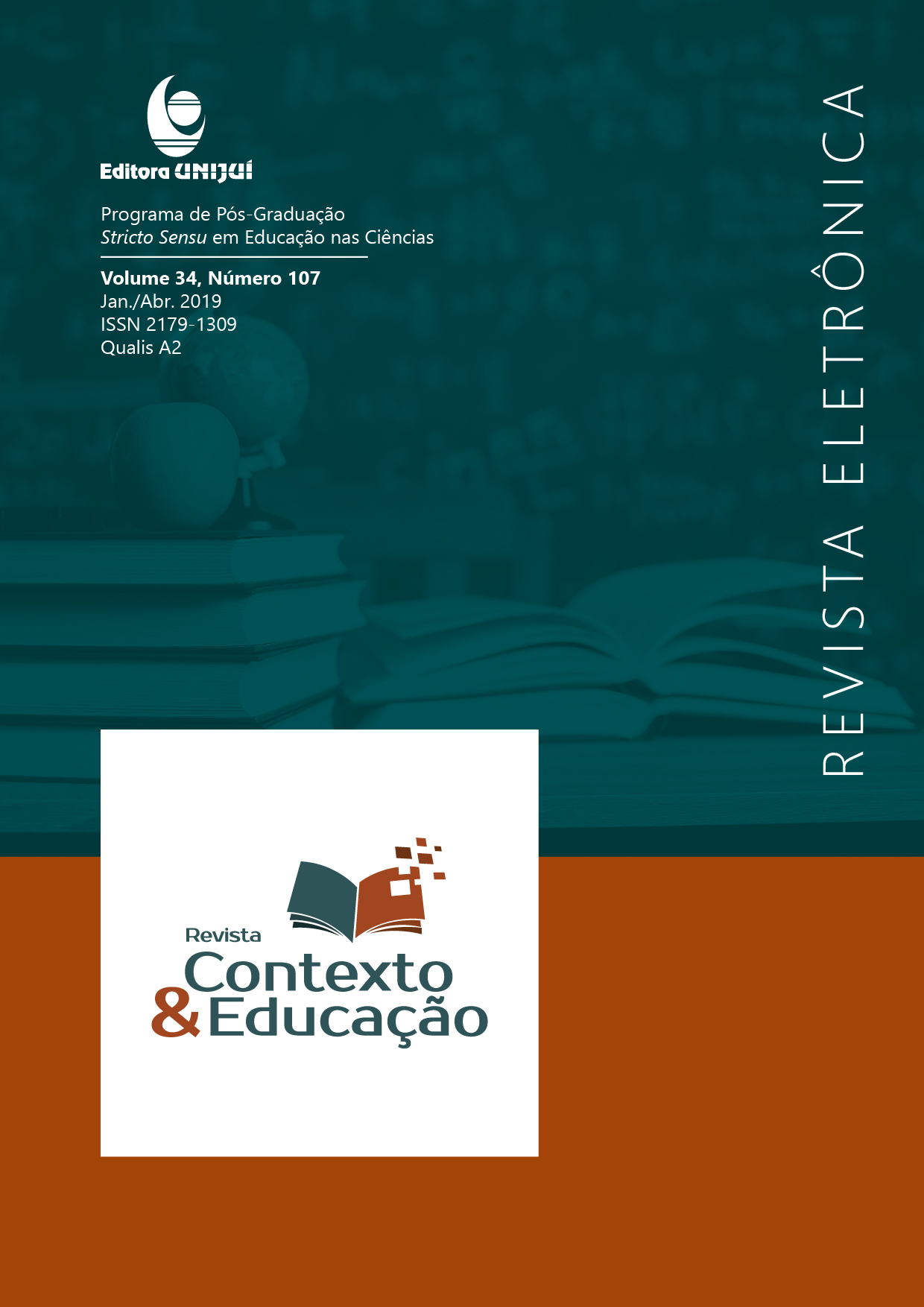A UNIVERSIDADE COMO ESPAÇO PROMOTOR DE CULTURAS SAUDÁVEIS
DOI:
https://doi.org/10.21527/2179-1309.2019.107.288-298Keywords:
Universidade, Educação em Saúde, Qualidade de Vida, Promoção da Saúde.Abstract
O objetivo do estudo foi propor estratégias que colaborem na construção de políticas educacionais a serem desenvolvidas nas instituições de ensino superior que estimulem à adoção de comportamentos saudáveis. Método: A pesquisa foi realizada em uma instituição de Ensino Superior do Ceará- Brasil, com 324 universitários, ingressantes e concluintes nas áreas da saúde, humanas e exatas. O instrumento utilizado foi o ISAQ-A. A coleta correu em Janeiro e Fevereiro/2017. Resultados e Discussão: As informações obtidas na fase exploratória deflagra que os estudantes, em sua maioria, estão insatisfeitos com a imagem que têm de si e não apresentam padrões considerados saudáveis no que se refere aos hábitos alimentares, a prática de atividades físicas no lazer e sobrepeso. A maior permanência no ambiente universitário mostra-se associado a chances de inatividade física e outros comportamentos de risco. Existe uma forte relação entre estar muito estressado com o rendimento acadêmico menor. As estratégias propostas foram: a participação dos estudantes como protagonistas de uma cultura saudável, espaços disponíveis para a prática de atividade física, a implantação de um restaurante universitário e o fortalecimento do Núcleo de Apoio ao Discente, observando o perfil do ingressante e as tendências ao longo da vida universitária, escuta qualificado e formação de grupos de apoio. Conclusão: as tendências observadas traz um contexto preocupante relativo a fatores de risco presentes na população universitária, as estratégias propostas, fortalecem o conceito que a Universidade deve ser um espaço promotor de culturas saudáveis e novas pesquisas são necessárias para aprofundar esta temática.
Downloads
Published
How to Cite
Issue
Section
License
By publishing in Revista Contexto & Educação, authors agree to the following terms:
All works are published under the Creative Commons Attribution 4.0 International License (CC BY 4.0), which allows:
Sharing — to copy and redistribute the material in any medium or format;
Adaptation — to remix, transform, and build upon the material for any purpose, even commercially.
These permissions are irrevocable, provided that the following terms are respected:
Attribution — authors must be properly credited, a link to the license must be provided, and any changes made must be indicated.
No additional restrictions — no legal or technological measures may be applied that legally restrict others from doing anything the license permits.
Notices:
The license does not apply to elements that are in the public domain or covered by legal exceptions.
The license does not grant all necessary rights for specific uses (e.g., image rights, privacy, or moral rights).
The journal is not responsible for the opinions expressed in the articles, which are the sole responsibility of the authors. The Editor, with the support of the Editorial Board, reserves the right to suggest or request modifications when necessary.
Only original scientific articles presenting research results of interest that have not been previously published or simultaneously submitted to another journal with the same purpose will be accepted.
Mentions of trademarks or specific products are intended solely for identification purposes and do not imply any promotional relationship by the authors or the journal.
License Agreement (for articles published from October 2025): Authors retain the copyright to their article and grant Revista Contexto & Educação the right of first publication.


